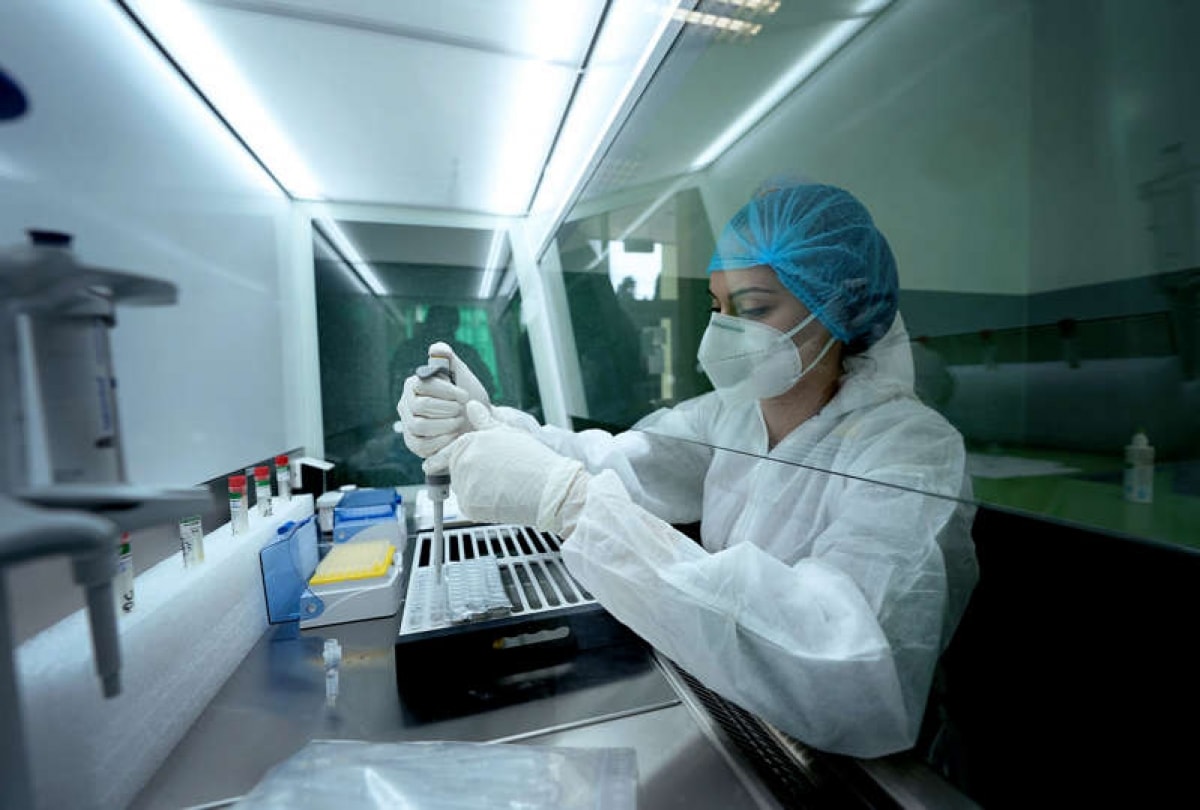Widespread Delta variant forces vaccine makers to change strategy
A booster shot or a completely new type of Covid-19 vaccine? That is what researchers and pharmaceutical companies are "headache" about as many new variants of the SARS-CoV-2 virus appear with higher transmission and more dangerous ability than the original strain.
When US states had to shut down in March 2020 due toCovid-19 pandemic, many assumed or hoped the situation was temporary. Efforts were being made rapidly to develop a vaccine and a return to normal life seemed only a matter of time.
 |
| The widespread Delta variant has forced vaccine makers to change their strategies. Photo: Getty |
But 17 months later, America is still not truly “back to normal.” Scary new variants like Delta and Lambda have emerged, which are more infectious and more dangerous than the original variant of the SARS-CoV-2 virus. Early evidence shows that although existing vaccines help prevent people infected with SARS-CoV-2 from becoming seriously ill, they do not prevent transmission.
Need to change to keep up with new variants
“As the SARS-CoV-2 virus continues to evolve, Pfizer and BioNTech are continuing their work to understand long-term immunity, the need for booster shots, and the threats posed by new variants to vaccine protection,” a Pfizer spokesperson said.
According to Pfizer, the research and available evidence shows that its Covid-19 vaccine is still effective in protecting people against current variants. In addition, Pfizer is currently conducting clinical trials in different stages for the third dose of the Covid-19 vaccine, with promising results.
Pfizer also plans to monitor new variants and waning immunity so it can prepare new products if needed.
“That's part of the reason why we chose a vaccine technology that has the flexibility [mRNA technology], which allows us to give a booster dose if needed and address potential changes in the virus,” said a Pfizer representative.
Moderna also recently recommended that people who have received two doses of its Covid-19 vaccine should get a third shot next fall to ensure protection against new variants.
According to Moderna, its vaccine is still 90% effective in preventing Covid-19 for at least 6 months, but after 6 months, the antibody level of the vaccine will weaken, especially in dealing with new variants, including the Delta variant that is currently spreading rapidly.
Meanwhile, pharmaceutical giant Johnson & Johnson (J&J) - a company that does not use mRNA technology but uses traditional technology, is also continuing to research the effectiveness of its single-shot Covid-19 vaccine against new variants.
“Evidence from the phase 3 collaborative study demonstrates the efficacy of the single-shot J&J Covid-19 vaccine, including against emerging virus variants,” J&J said.
The company is also currently monitoring new variants “through clinical efficacy trials to determine whether the immune response induced by J&J’s Covid-19 vaccine is capable of neutralizing new variants.”
Could Covid-19 be like seasonal flu?
A major challenge facing vaccine makers is anti-vaccine sentiment, which, according to a Pfizer spokesperson, makes it harder to rid the world of the pandemic.
“Individuals without immunity [to Covid-19] will provide opportunities for the virus to spread, continue to mutate, and remain a risk to the community. Therefore, it is important to vaccinate as many people as possible as quickly as possible. Following public health guidance to limit exposure to SARS-CoV-2, such as wearing masks and social distancing, combined with continued vaccination campaigns, can help us achieve herd immunity and reduce Covid-19 cases,” said a Pfizer spokesperson.
Sarah E. Cobey, a microbiologist who studies pathogen evolution at the University of Chicago, said it was “disappointing” that companies that used cutting-edge technology and the latest knowledge to produce vaccines at incredible speed were seen by many as evidence that vaccines are unreliable. She stressed that SARS-CoV-2 is a terrible virus.
In the long run, some believe Covid-19 will be like the flu – a virus that mutates every year and kills many people; but can be relatively contained by booster shots, allowing vaccination to keep up with mutant strains.
In fact, some states and cities in the US have allowed certain groups to receive booster shots of the Covid-19 vaccine, although these are not new vaccines but additional doses of existing vaccines.
“All of the vaccines that are currently available are based on the original SARS-CoV-2 strain that was first discovered in China, the original strain that started the global pandemic, and has many variants. Can you develop a booster shot to protect against these new variants? The answer is absolutely yes,” said Dr. Jonathan Zenilman, an infectious disease specialist and professor at Johns Hopkins University School of Medicine./.

